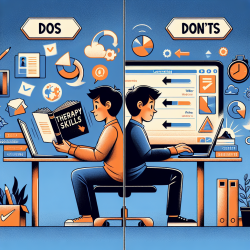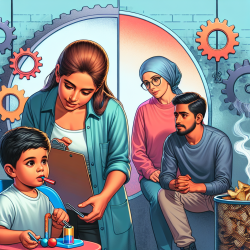As an online therapy practitioner, continually enhancing your skills is crucial for providing the best possible support to your students. Drawing from the research article "Guidelines: The dos, don’ts and don’t knows of remediation in medical education," we present practical guidelines that can help you improve your therapy skills. This article offers valuable insights into effective remediation strategies, which can be applied to the context of online therapy in special education.
Dos: What You Should Be Doing
- Develop a Robust Feedback Culture: Establish a system where feedback is frequent, constructive, and multi-sourced. This will help you and your students continuously improve.
- Individualize Your Approach: Recognize that each student has unique needs and tailor your therapy plans accordingly. This ensures that every student receives the support they need to succeed.
- Early Detection and Intervention: Be proactive in identifying students who may need additional support. Early intervention can prevent minor issues from becoming significant obstacles.
- Continuous Professional Development: Engage in ongoing training and development opportunities to stay current with the latest research and best practices in online therapy.
Don’ts: What to Avoid
- Don’t Rely Solely on Academic Markers: While academic performance is important, it should not be the only measure of a student’s progress. Consider emotional, social, and behavioral factors as well.
- Don’t Use One-Size-Fits-All Solutions: Avoid generic interventions that do not address the specific needs of each student. Customized plans are more effective.
- Don’t Delay Feedback: Timely feedback is crucial for effective learning and improvement. Delayed feedback can diminish its impact.
- Don’t Ignore the Importance of Emotional Support: Providing emotional support is as important as addressing academic needs. Ensure your students feel supported and understood.
Don’t Knows: Areas Needing Further Research
- Long-Term Outcomes of Remediation: More research is needed to understand the long-term effects of remediation strategies.
- Optimal Blend and Duration of Remediation: The most effective combination and length of interventions are still under study.
- Integration with Competency-Based Education: How best to align remediation with competency-based education models remains an open question.
By implementing these guidelines, you can enhance your online therapy skills and provide more effective support to your students. For a deeper dive into the research, consider exploring the original paper: Guidelines: The dos, don’ts and don’t knows of remediation in medical education.










